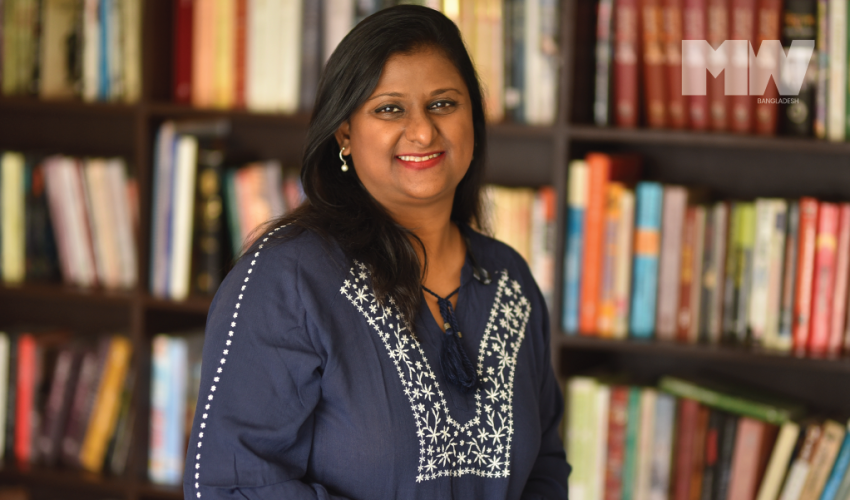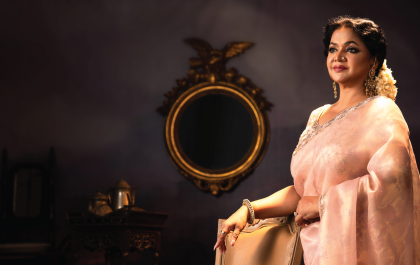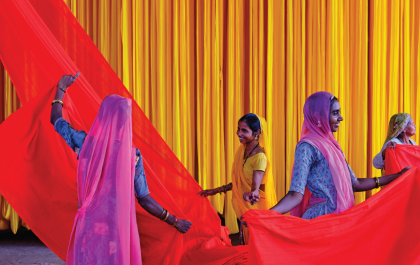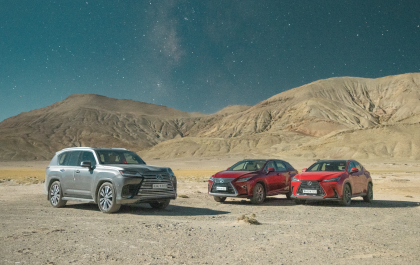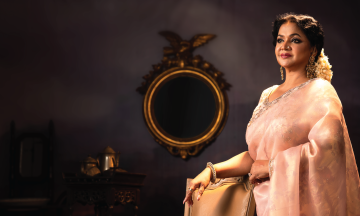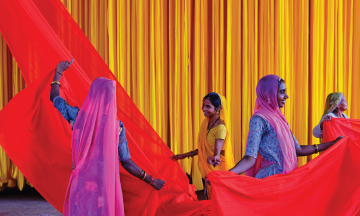Anika Chowdhury
A well-known figure in the Bangladeshi film industry, Mahjabin Reza Choudhury has established herself as a talented producer and produced critically acclaimed films and web series such as Rickshaw Girl and Bodh. Influenced significantly by her brother, Amitabh Reza Chowdhury, an eminent director, the producer was drawn to film production from a young age. Her journey in the industry reflects a deep-seated passion for story-telling and an interest in the creative processes behind film-making.
Over a Google Meet session, Mahjabin Reza Choudhury opened up about her journey to MWB.
What inspired you to become a film producer?
I am very close to my brother Amitabh Reza Chowdhury and he is seven years older than I am. He is very protective of me and I have always followed him diligently. When I was young, I resolved to follow in my brother’s footsteps. So, this is where my primary inspiration came from.
Again, I have always wanted to create something of my own and never liked or wanted to do a 9 to 5 job. So, I started my career in the production industry. The advertising industry, the play of light and shadow and the fieldwork – everything had fascinated me.
This is why I have been in the production business for more than 23 years and never tried to go anywhere else. Above everything else, I am incredibly grateful to my husband Md Assaduzzaman and son Ehan Zaman. My family has been my biggest source of inspiration.
Ultimately, my foray into film production is driven by a commitment to story-telling – a love for the creative process
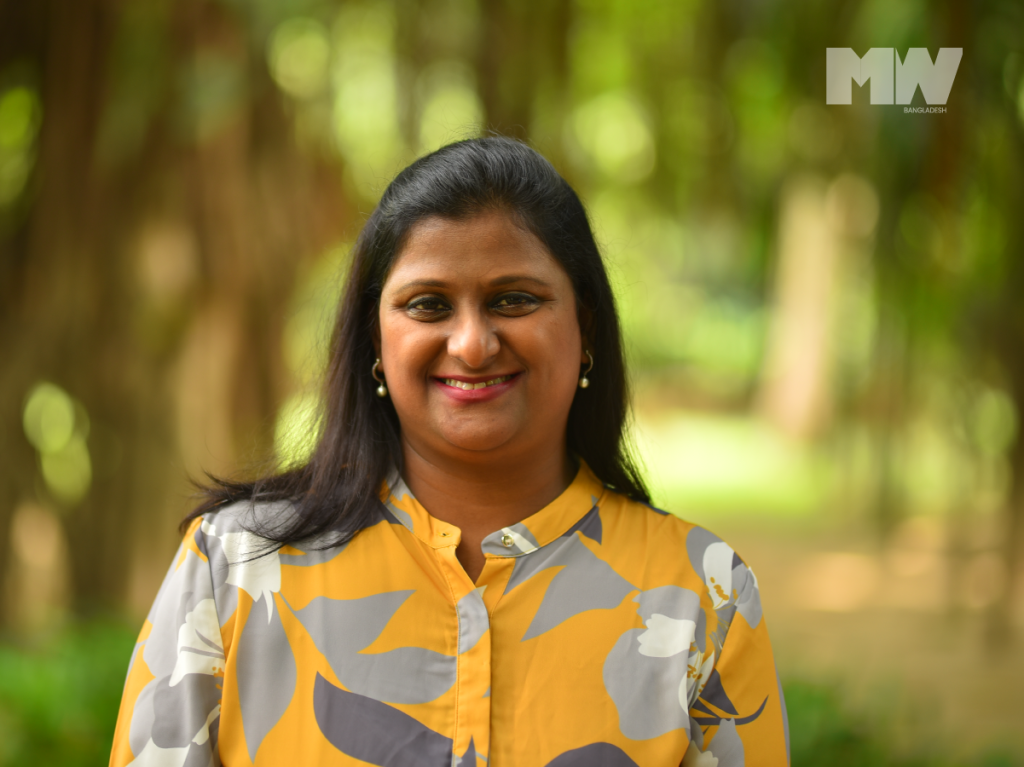
How has your background in sports during your school years influenced your approach to film-making and production? Do you see any parallels between the disciplines required in sports and film production?
I cherish my school years because during that time I learned a lot. Whether it was education, discipline, teamwork or any other values, my school – Viqarunnisa Noon School and College – played a pivotal role in my upbringing.
As for the parallels between sports and film production, discipline is needed in both of these fields.
The world of sports, much like film production, is built on discipline, teamwork, and a relentless pursuit of excellence
These experiences have taught me valuable lessons that I apply to my work in the film industry. Whenever we work on a film or any other production, we have to be on the set. There is no option of sitting in an AC room and completing the project.
Collaborating with your brother, Amitabh Reza Chowdhury, on Rickshaw Girl must have been a unique experience. Can you share insights into how your sibling dynamic contributes to your creative and working relationship?
I started working with Amitabh bhai in 2001. However, whenever we are on the set, we forget that we are siblings and only act professionally. I share my suggestions or concerns if I deem it necessary and Amitabh bhai listens to me as a director.
Again, whenever working with an experienced individual, you will benefit in many ways. You will learn many lessons from that person. I believe Amitabh bhai is an exceptionally talented person and I am always learning from him.
However, working with family also means that we have to navigate the delicate balance between our professional roles and personal relationships. Though sometimes there are slight disagreements between us, we also know how to overcome them strategically.
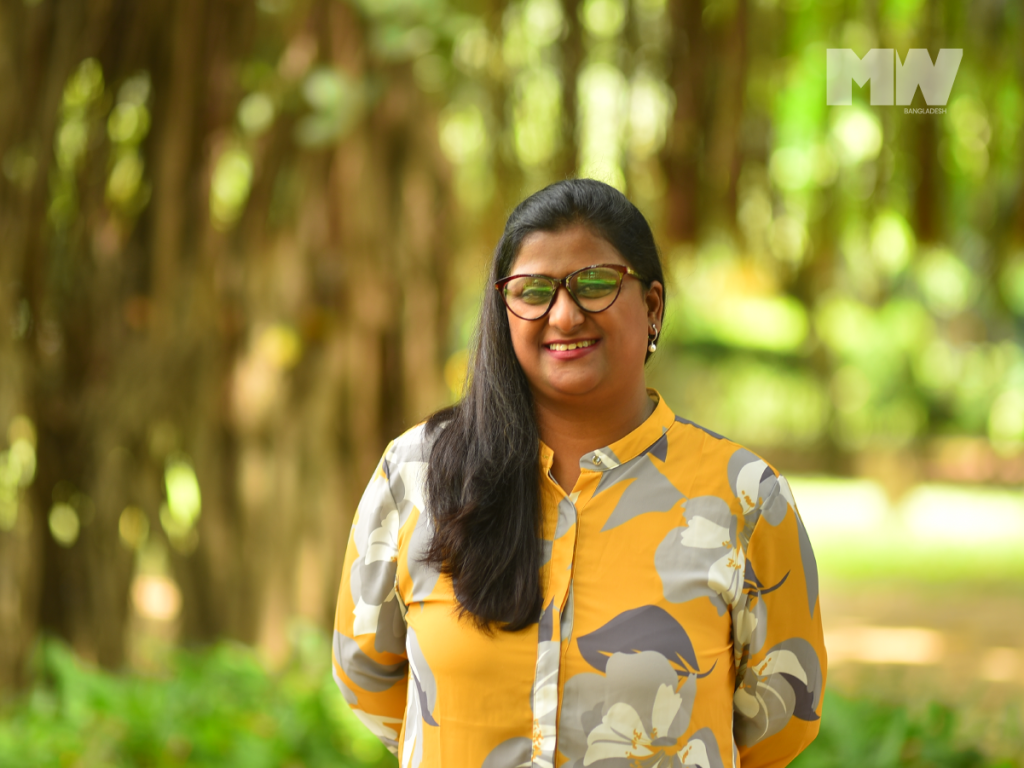
Rickshaw Girl has been acclaimed at various international film festivals. What, in your opinion, makes it resonate with audiences worldwide?
Rickshaw Girl is a very special project for me because during that time I was pregnant. However, because of the stress and workload, I suffered a miscarriage and lost my baby. Though I was heartbroken, my brother helped me both professionally and personally. My work helped me to heal during that time.
The story of Rickshaw Girl is no love story. But it is a story of a girl learning to be resilient and brave, fighting with society and breaking the norm. This is what makes Rickshaw Girl such a beautiful story and so relevant that everywhere – USA, Japan, Germany – the audience could relate to it. It is such a movie from which everyone can learn a lot of lessons.
The protagonist of Rickshaw Girl takes care of her entire family and acts very maturely, which I believe, can teach and resonate with school-going children of our country
How do you select your projects?
I select my projects by hearing the initial logline. If I like the story, and if I can relate to it, I choose the project. For me, the story matters a lot.
How do you measure the success of a film? Is it through awards, box office performance, critical acclaim, or something else?
For me, the only way to measure a film is by deciding whether I like the movie or not. Similar to many film-makers, for me success is also deeply personal. Achieving artistic goals, creating something meaningful, and staying true to one’s vision can be just as important as financial gain or public recognition.
Are there any particular genres of film that you are drawn to, either as a viewer or a producer?
I like love stories a lot. Movies about love and relationships move me profoundly. It does not have to be about couples – it can be about relationships between parents, siblings, friends, etc.
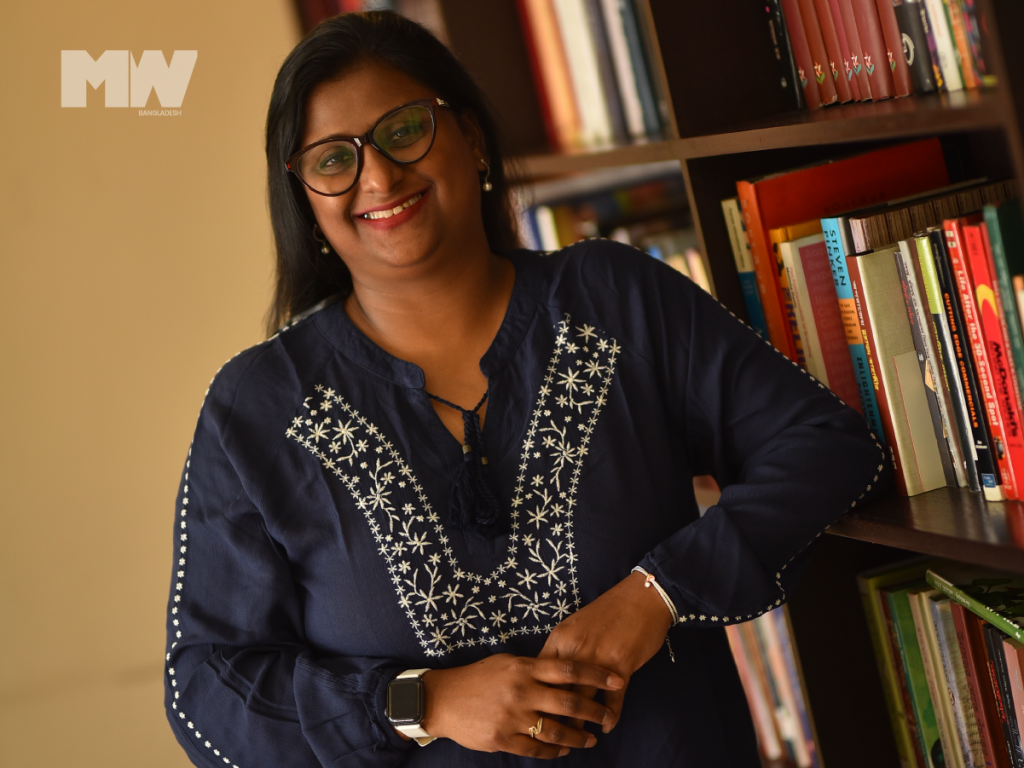
As a female producer in the Bangladeshi film industry, what are some of the unique challenges you’ve faced, and how have you navigated them?
I have been faced with a similar question many times before. Whether you’re a male producer or female producer, you’re bound to face challenges. However, in our country, it seems to me that female professionals need to prove themselves repeatedly – whether they’re journalists, doctors or producers.
The first hurdle often comes from the industry’s traditionally male-dominated landscape, where women in leadership roles can sometimes face scepticism regarding their capabilities. In many scenarios, I had been questioned about my capabilities just because I am a female producer. Still, I came this far by facing these challenges head-on and navigating them with resilience.
Reflecting on your experiences, what advice would you offer to young women aspiring to break into the film industry, either in front of the camera or behind the scenes?
I would say no matter what happens, be sincere, hard-working and honest with your work. If you are earnest in your efforts, nothing can bring you down.
Can you share any insights into your upcoming projects?
Currently, we are working on two new OTT projects. One is a love story and the other one is a comedy. We are also planning to work on a new commercial film at the start of the next year.




